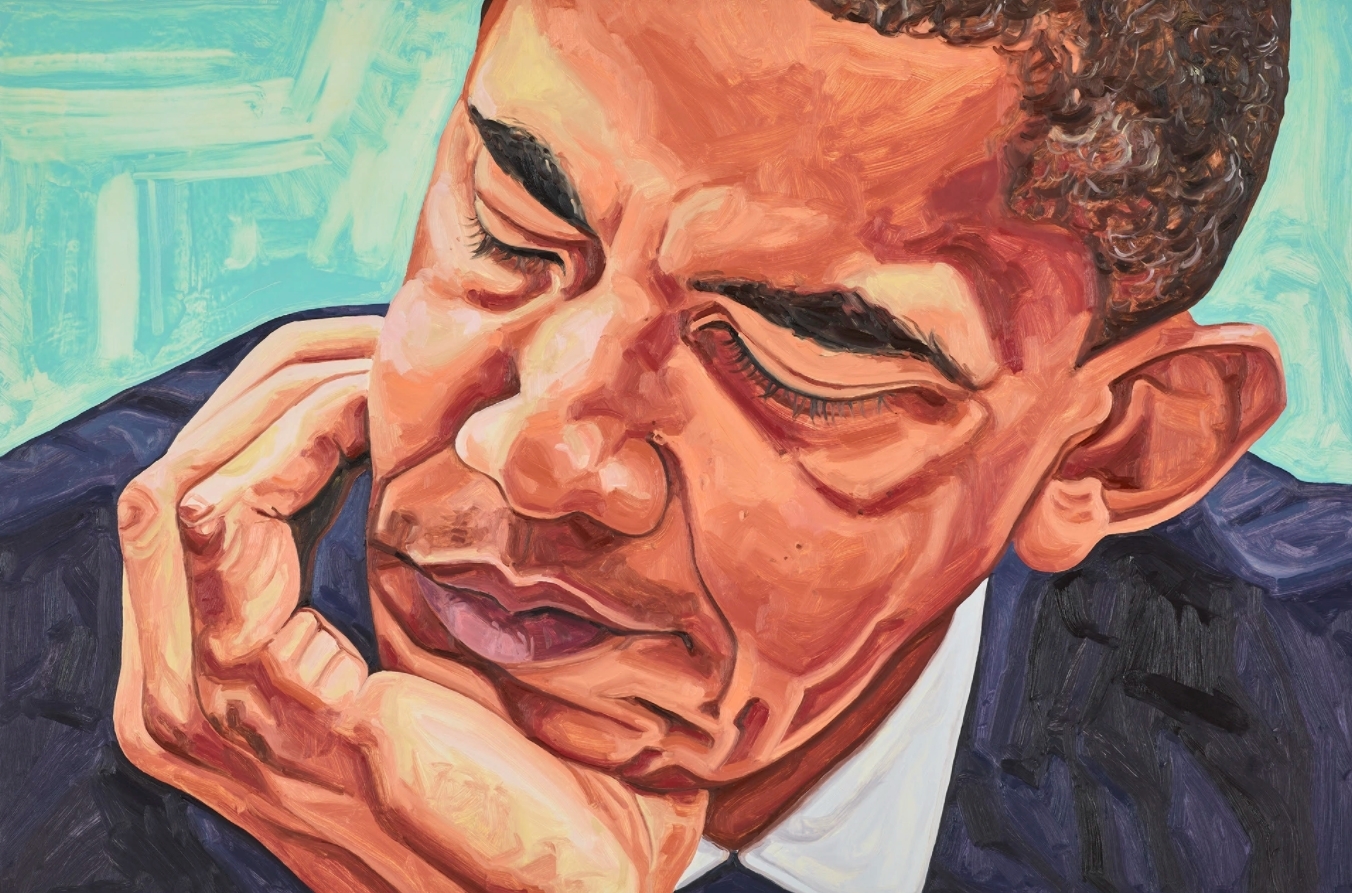Welcome to DU!
The truly grassroots left-of-center political community where regular people, not algorithms, drive the discussions and set the standards.
Join the community:
Create a free account
Support DU (and get rid of ads!):
Become a Star Member
Latest Breaking News
Editorials & Other Articles
General Discussion
The DU Lounge
All Forums
Issue Forums
Culture Forums
Alliance Forums
Region Forums
Support Forums
Help & Search
General Discussion
Related: Editorials & Other Articles, Issue Forums, Alliance Forums, Region ForumsWhy Obama Fears for Our Democracy
In an exclusive interview, the former president identifies the greatest threats to the American experiment, explains why he’s still hopeful, and opens up about his new book.https://www.theatlantic.com/ideas/archive/2020/11/why-obama-fears-for-our-democracy/617087/

Barack Obama was describing to me the manner in which the Mongol emperor and war-crimes innovator Genghis Khan would besiege a town. “They gave you two choices,” he said. “‘If you open the gates, we’ll just kill you quickly and take your women and enslave your children, but we won’t slaughter them. But if you hold out, then we’ll slowly boil you in oil and peel off your skin.’” This was not meant to be commentary on the Trump presidency—not directly, at least. In any case, Obama has more respect for Genghis Khan than he has for Donald Trump. He raised the subject of Genghis Khan in order to make a specific, extremely Obama-like point: If you think today’s world is grim, simply cast your mind back 800 years to the steppes of Central Asia. “Compare the degree of brutality and venality and corruption and just sheer folly that you see across human history with how things are now,” he said. “It’s not even close.”
We were sitting at opposite ends of a long table in his office suite in the West End district of Washington. The offices were empty, except for a couple of aides and a discreet Secret Service detail. Obama was in a good mood, happy to discuss the work that has consumed him for more than three years: the writing of A Promised Land, his presidential memoir—or what turns out to be (because he has much to say about many things) the first of two volumes of his presidential memoir. The first volume’s 768 pages carry him from childhood to the bin Laden raid of 2011. A publication date for the next instalment, which will presumably cover such issues as the Syrian civil war, Russia’s invasion of Ukraine, and the Iran nuclear deal, has not yet been announced. A Promised Land is an unusual presidential memoir in many ways: unusually interior, unusually self-critical, unusually modern (this is the first presidential memoir, I believe, to use the term ethereal bisexual to describe an unrequited love interest), and unusually well written. The book does suffer at times from a general too-muchness, and it has its arid stretches, although to be fair, no one has yet invented a way to inject poetry into extended explanations of cap-and-trade, or Mitch McConnell’s motivations.
We covered a lot of ground in our face-to-face discussion, which took place on Wednesday, and in a follow-up call on Friday. The broadest subject of our conversation was the arc of the moral universe: Does it still bend toward justice? Does it even exist? When Obama was elected 12 years ago, the arc seemed more readily visible, at least to that swath of the country interested in seeing someone other than a white male become president. But he now recognizes that the change he represented triggered an almost instantaneous backlash, one that culminated in the “birther” conspiracy that catapulted its prime propagandist, Donald Trump, to the White House. “What I think is indisputable is that I signified a shift in power. Just my mere presence worried folks, in some cases explicitly, in some cases subconsciously,” Obama said. “And then there were folks around to exploit that and tap into that. If a Fox News talking head asks, when Michelle and I dap, give each other a fist bump, ‘Is that a terrorist fist bump?,’ that’s not a particularly subtle reference. If there’s a sign in opposition to the ACA in which I’m dressed as an African witch doctor with a bone through my nose, that’s not a hard thing to interpret.”
For Obama, though, the overarching story of America, and all humanity, is one of fitful progress—and nothing about the past four years has seemed to change his mind. Joe Biden’s election is proof that America moves forward; the persistence of racial animus and resentment-driven populism represents the difficulty of maintaining momentum. Obama’s you-think-you-have-it-so-bad invocation of Genghis Khan was prompted by a passage I read aloud to him. It is a brief peak-Obama, “Ozymandias”-inflected passage about a visit to Egypt. Obama recalls brooding over a face of a forgotten figure etched into an ancient wall, a face that resembled his. “All of it was forgotten now, none of it mattered, the pharaoh, the slave, and the vandal all long turned to dust. Just as every speech I’d delivered, every law I passed and decision I made, would be forgotten. Just as I and all those I loved would someday turn to dust.”
snip
